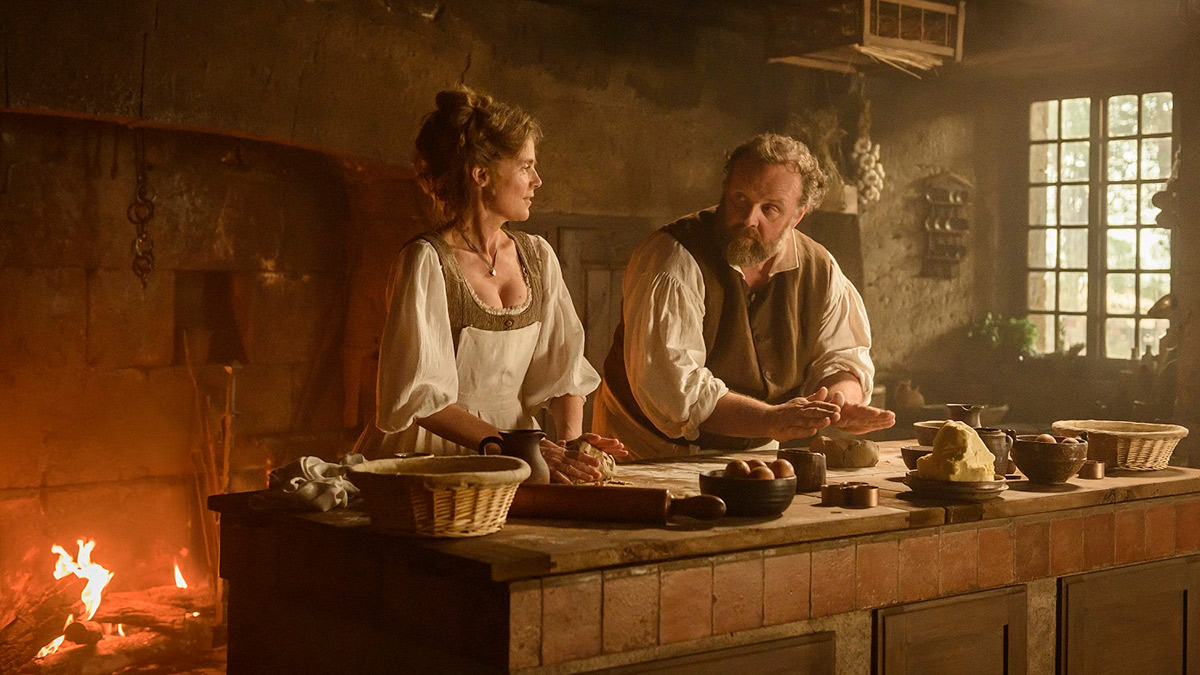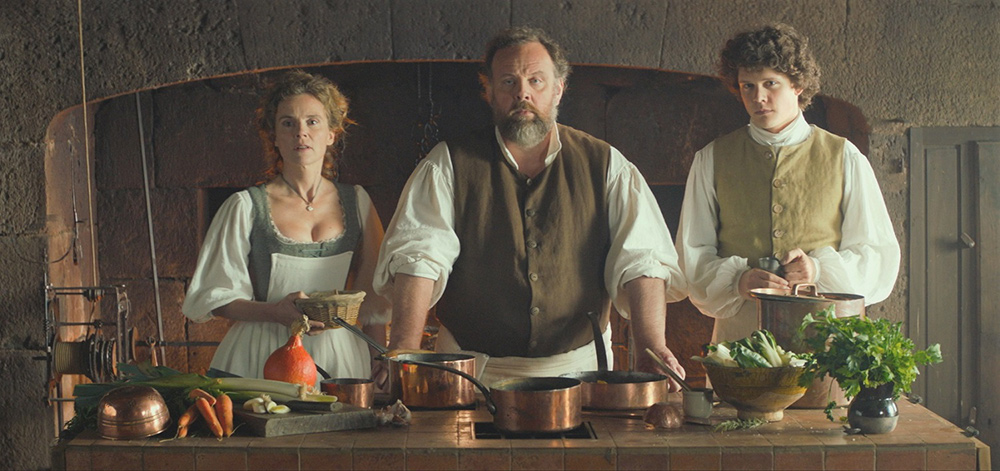
©2020 NORD-OUEST FILMS―SND GROUE M6―FRANCE 3 CINÉMA―AUVERGNE-RHôNE-ALPES CINÉMA―ALTÉMIS PRODUCTIONS
“Delicious” depicts an informative history of French cuisine
2022.09.06
“Delicious”Synopsis
France in 1789, just before the revolution. Mansuron, a proud court chef, arouses the resentment of the aristocrats for using potatoes in his signature dish, ``delish,'' and is dismissed by his master, an arrogant duke, and has to return to his parents' home with his son. He decides not to cook anymore, but one day Louise, a woman who wants to learn cooking alongside him, comes to visit. At first, Mansuron is suspicious of Mansuron, but as he comes into contact with her honest feelings, he regains his passion for cooking, and the two end up running the world's first restaurant open to the general public. The store quickly becomes popular and the duke learns of its existence.
Amid the pandemic, which still seems like it won't end, a ``gourmet movie'' has been released that fulfills the two needs of going to the movie theater and eating at a restaurant at the same time. The title of the work is “Delicious(Original title: Délicieux) is the name of the potato and truffle amuse that appears in the play, and is also the name of the restaurant where the story takes place.
In 1789, on the eve of the French Revolution, the main character, the chef Manceron, ends up having a difficult time after serving ``delish'' to the table of the Duke of Chamfort, whom he serves. This is because it was nothing short of outrageous to serve potatoes, which were considered pig feed in the aristocratic society of the time, to a gathering of gourmets. Even if Mansuron was recognized by the duke for his creative cooking.
“Delicious” Preview
Index
- Pioneer of restaurants open to ordinary people
- A chef from the French Ministry of Foreign Affairs coordinates the cooking.
- The flavor of a simple but convincing love romance
Pioneer of restaurants open to ordinary people
When Mansuron's new dish, ``delish'', is served at a large table surrounded by the duke and his guests, the aristocrats wonder, ``What is the point in serving pig feed to a nobleman? ” he starts to get angry, and soon everyone around him bursts into laughter. Humiliated, the Duke demands a public apology from Mansuron, but Mansuron flatly refuses. After insisting on his freedom to cook, he is fired and returns to his parents' home with his son Benjamin. There, Mansuron learns from his friend Jacob that his father has passed away and that the people living in the area are starving due to repeated food shortages. Eventually, Mansuron returns to work as a chef in the kitchen of a restaurant that opens in his hometown.

“Delicious”©2020 NORD-OUEST FILMS―SND GROUE M6―FRANCE 3 CINÉMA―AUVERGNE-RHôNE-ALPES CINÉMA―ALTÉMIS PRODUCTIONS
At Manseron's Auberge, several tables are set up at intervals throughout the dining room, and anyone can come and go as they please. Guests, regardless of class, can sit at individual tables and enjoy multi-course meals. This is truly the food equality and food revolution that came with the French Revolution. The highlight of this film is how this style, which we take for granted now, was sensational at a time when it was taboo for aristocrats and commoners to enjoy meals in the same place. The film's goal of conveying that French cuisine was not just for the privileged classes, but was created to satisfy the hunger of the masses, slowly permeates your heart like the flavor of fragrant potatoes and truffles.
Director Eric Benard, who is making this his seventh feature film and his first historical drama, said, ``When I wanted to focus on what shapes French identity, I wanted to focus on gastronomy, a sit-down meal, a moment of conviviality.'' "There was something here that could be shared, but at the same time had all the elements of the Age of Enlightenment and revolution," he says of his motivation for making it.

